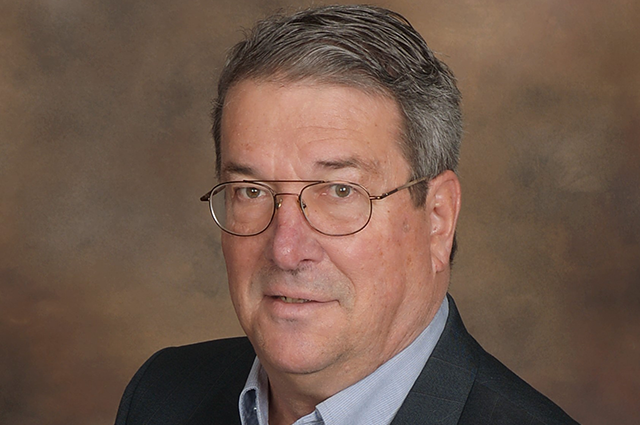Battery powered future

By Manisha Aggarwal-Schifellite
Neil Puester, E66, has never been afraid of a challenge. Looking back on a lengthy career in engineering and business, it’s the risks he took that he found most rewarding.
In 2000, Puester co-founded Nilar, a battery-storage solutions company with the goal of creating a battery for a new era. As technological developments in electric cars, computers, and cellular devices were improving, Puester knew that batteries would have to develop along with the products they would power. “I came to the conclusion that the world needed a better battery, and that the future was in batteries,” he says of the company’s founding. “A bipolar design is considered to be the holy grail of battery construction. We didn't know if our bipolar design would work.” Jumping into the unknown with his business partner paid off—Nilar is the only company in the world currently manufacturing nickel metal hydride bi-polar battery storage systems (NiMH) and has been operating for almost twenty years.
As Puester explains, NiMH has a higher energy density than most other battery chemistries, making the system a viable candidate for long-life batteries. But there are many issues that crop up when dealing with a bipolar battery design—heat generation and rejection across the battery, corrosion, and expansion are all risks. Nilar successfully designed and patented a bi-polar design in which battery cells are laid horizontally and stacked on top of one another to gain maximum space efficiency and assist with uniform heat generation across a device. This prevents batteries from heating too quickly or unevenly, which can damage the battery and the device.
Puester’s path to success has been anything but ordinary. He has always focused on what makes him curious, from working on backpacks able to withstand vibration that were used in the Apollo space missions of the late 1960s and early 1970s, to co-founding and working at Nilar in the early 2000s. Along the way he’s worked in high-tech battery engineering, navy engineering operations, and as a certified scuba diver. All of these experiences have been integral to his innovative and forward-thinking work, and it all started at Tufts.
Working with materials was always an interest of Puester’s, from his early days as an undergraduate at Tufts. Puester came to Tufts as a chemical engineering major, but soon switched to mechanical engineering. It was a move prompted by a desire to do more work with systems and tangible objects—and by a difficult encounter with an advanced physical chemistry course. “I don’t do chemistry,” he says now. “But I’m always thinking of ways to make a system work. If it doesn’t work, [I think]: what are my fallback positions?”
Puester attributes much of his success and longevity in his career to his experiences in school and in the workplace. His Tufts education gave him confidence to try new things and approach new situations without fear. He stresses the importance of taking advantage of each situation and the resources around you. “I’m an outside-the-box thinker,” Puester says, stressing how important it is to volunteer for new projects outside one’s comfort zone, as he has been doing since his days as a Jumbo.
Puester has retired from Nilar in recent years, but he keeps a close eye on developments in the battery world. Electric cars, cell phone batteries, and other newly ubiquitous inventions will need state-of-the-art battery designs to function effectively and efficiently in the future. Those batteries need to be environmentally sustainable and innovative to keep up with demand for products that can charge quickly without overheating. Nilar has been at the forefront of these developments, and Puester points out that there is always a new idea on the horizon.
In his career, Puester always has a back-up plan ready and isn’t afraid to think on his feet, and would advise Tufts students to do the same. “When you see a problem, you have to determine the weak spots and what needs improvement,” he says. “Instead of coming up with a [single] solution, I look for ways to reinvent a process.”
Department:
Mechanical Engineering